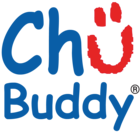Nail biting is a common behavior among individuals of all ages, but it can be particularly prevalent in autistic adults. Often linked to stress, anxiety, or sensory needs, nail biting can serve as a coping mechanism during challenging situations. Understanding the underlying reasons for this behavior and exploring effective strategies can help autistic adults manage their urges and develop healthier habits.
Why Do Autistic Adults Bite Their Nails?
-
Sensory Regulation: Many autistic individuals may bite their nails as a way to self-soothe or regulate sensory input. The physical sensation can provide comfort during overwhelming situations.
-
Emotional Expression: Nail biting can be a response to frustration or anxiety. It may serve as a physical outlet for emotions that are difficult to express verbally.
-
Boredom or Restlessness: Similar to others, autistic adults may bite their nails out of boredom or as a way to keep their hands busy during idle moments.
-
Routine and Habit: For some, nail biting becomes a habitual response that is hard to break, especially if it has been reinforced over time as a coping strategy.
Strategies to Help Autistic Adults Manage Nail Biting
-
Identify Triggers:
- Keeping a journal can help track when and why nail biting occurs. Understanding specific triggers—such as stressful situations or sensory overload—can inform coping strategies.
-
Sensory Alternatives:
- Introduce sensory tools like fidget toys, stress balls, or textured items that can provide the same soothing effect without resorting to nail biting.
-
Establish a Nail Care Routine:
- Regularly caring for nails can reduce the temptation to bite. Encourage grooming practices that make nails look appealing, which may decrease the urge to bite.
-
Use Visual Reminders:
- Place reminders in visible areas to promote mindfulness about the habit. Simple notes or visual cues can help bring awareness to nail biting.
-
Practice Mindfulness Techniques:
- Techniques such as deep breathing, meditation, or grounding exercises can help manage anxiety and reduce the urge to bite nails.
-
Apply Bitter Nail Polish:
- Consider using bitter-tasting nail polish designed to deter nail biting. The unpleasant taste can serve as a reminder to avoid the habit.
-
Create a Supportive Environment:
- Encourage open communication about feelings and frustrations. A supportive network can help autistic adults feel more comfortable expressing their emotions.
-
Seek Professional Help if Necessary:
- If nail biting becomes compulsive or significantly impacts daily life, consulting with a therapist who specializes in autism can provide tailored strategies and support.
Nail biting is a behavior that many autistic adults experience, often as a response to stress, sensory needs, or emotional challenges. By understanding the reasons behind this behavior and implementing effective coping strategies, autistic adults can learn to manage their urges and develop healthier habits. With patience and support, it’s possible to reduce nail biting and promote overall well-being.
If you have any questions or need further assistance, feel free to reach out to us at info@chubuddy.com.
The strategies in this blog post are tips and may not work for everyone. Each child/adult is unique, and it’s important to adapt these methods to fit individual needs. For persistent challenges, consider consulting a professional for tailored support.
